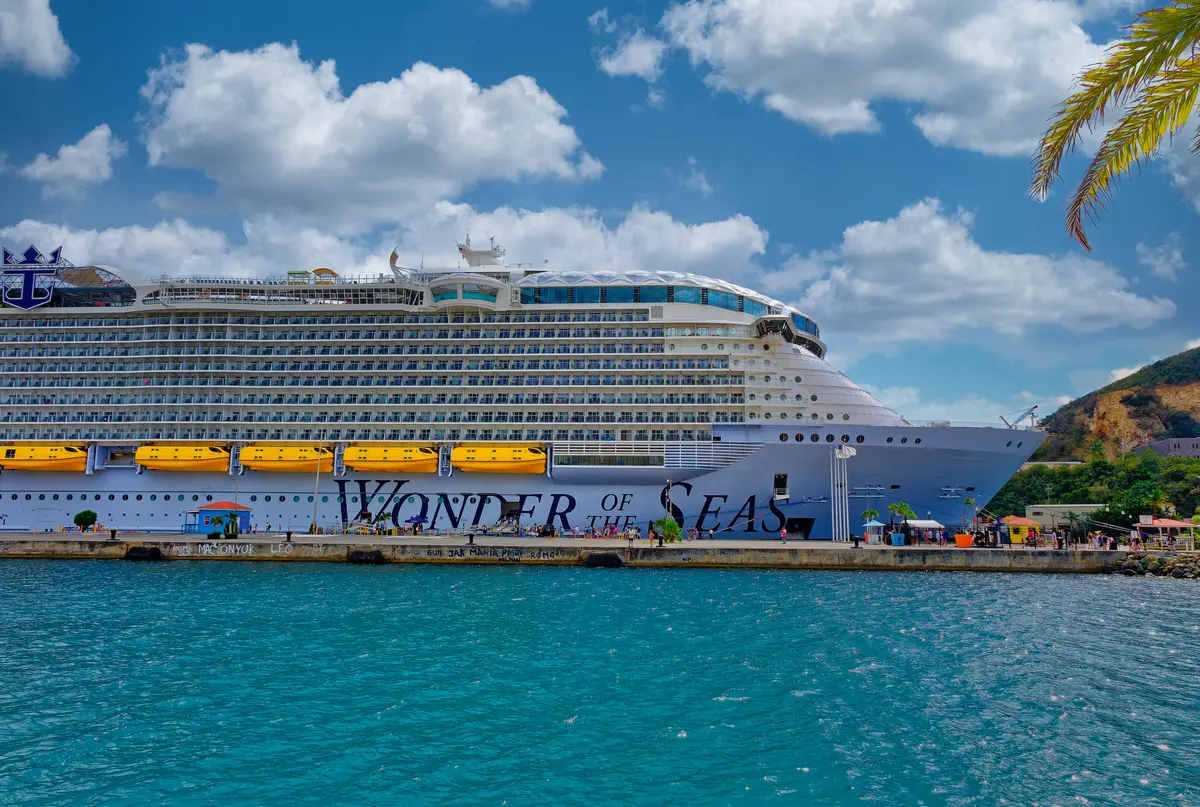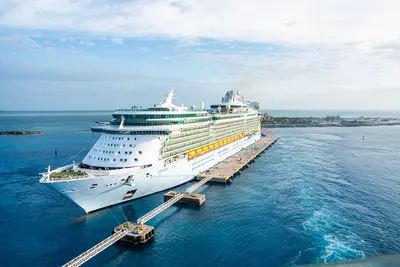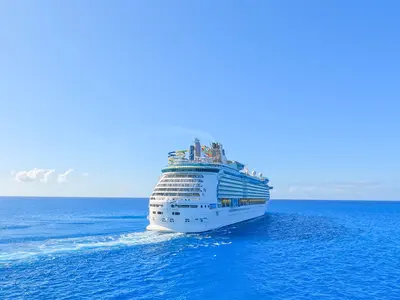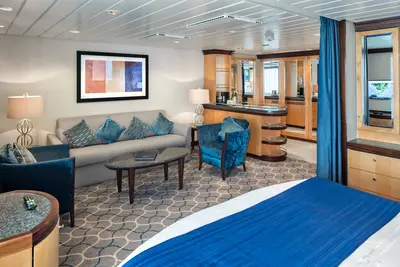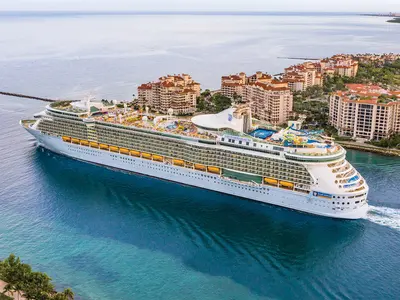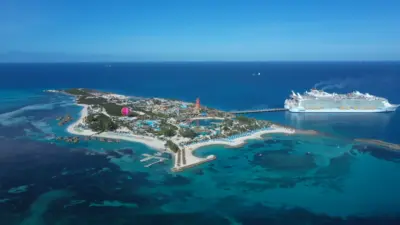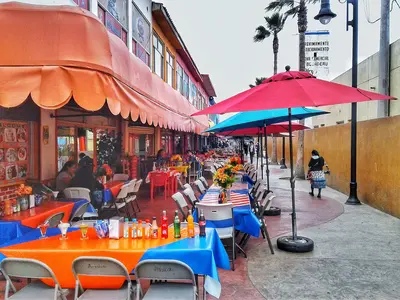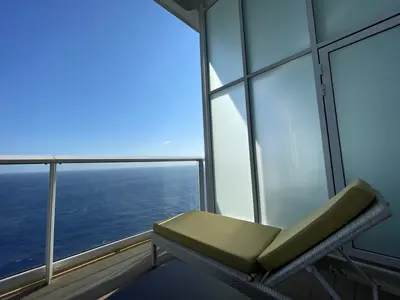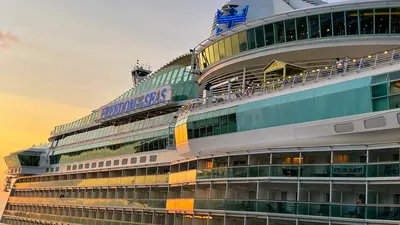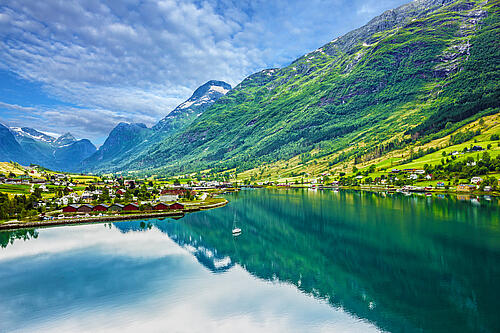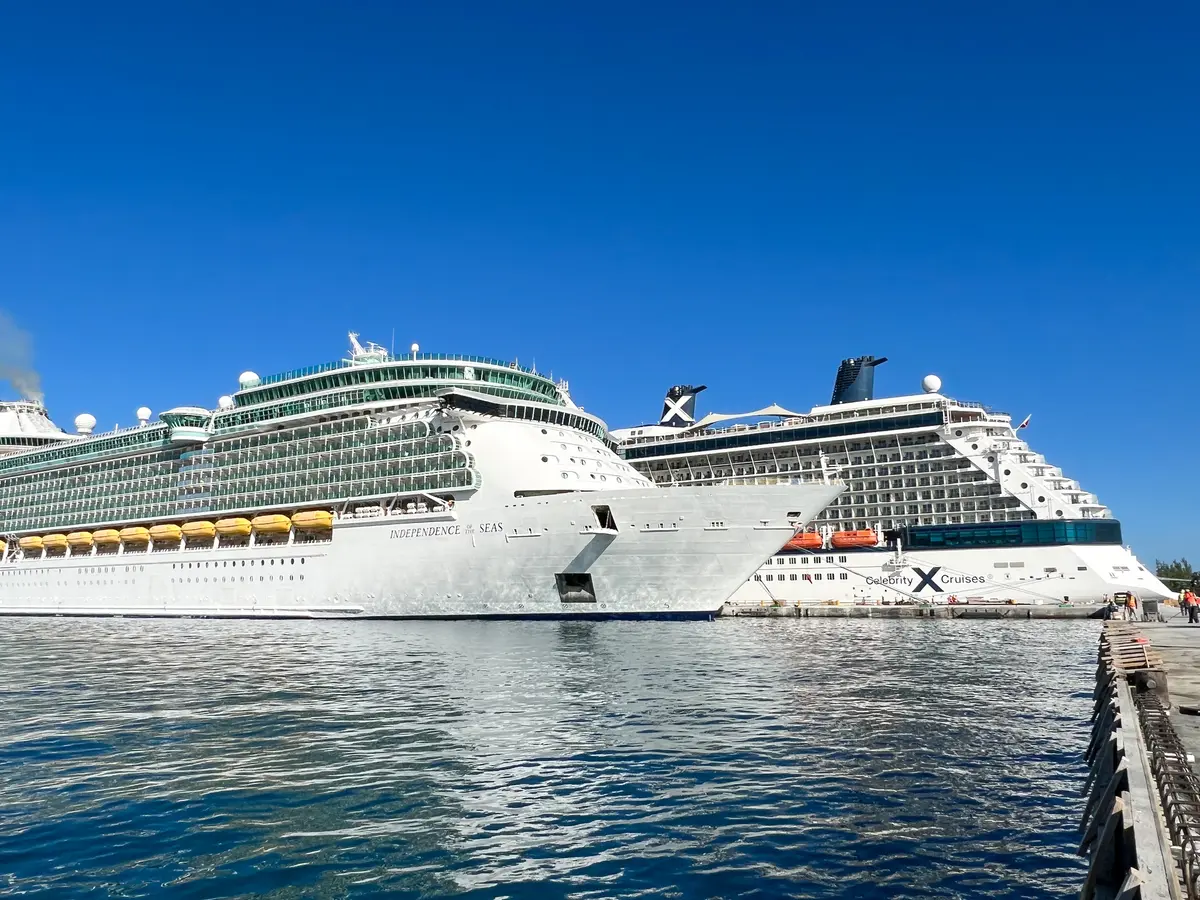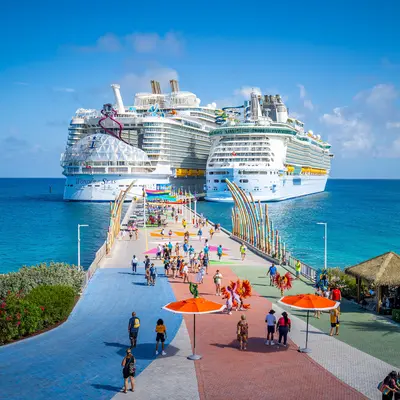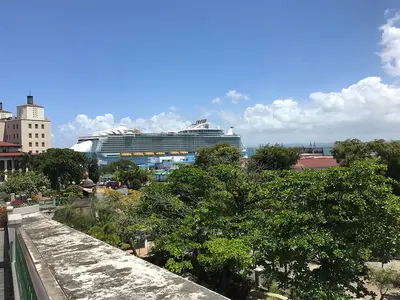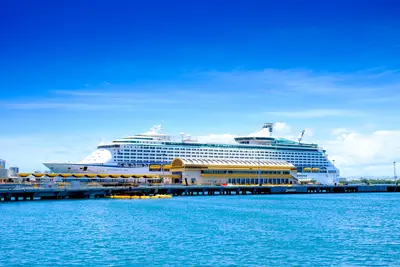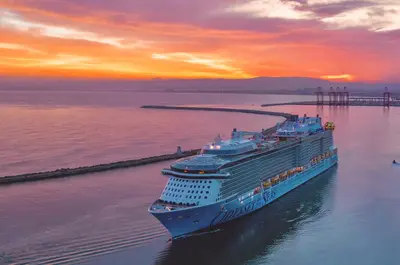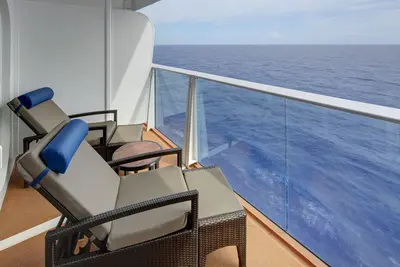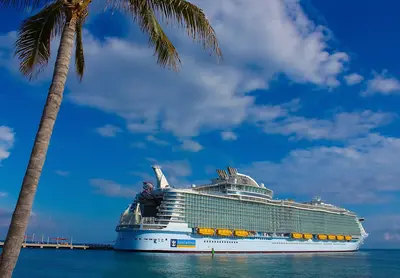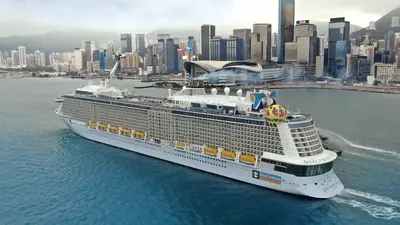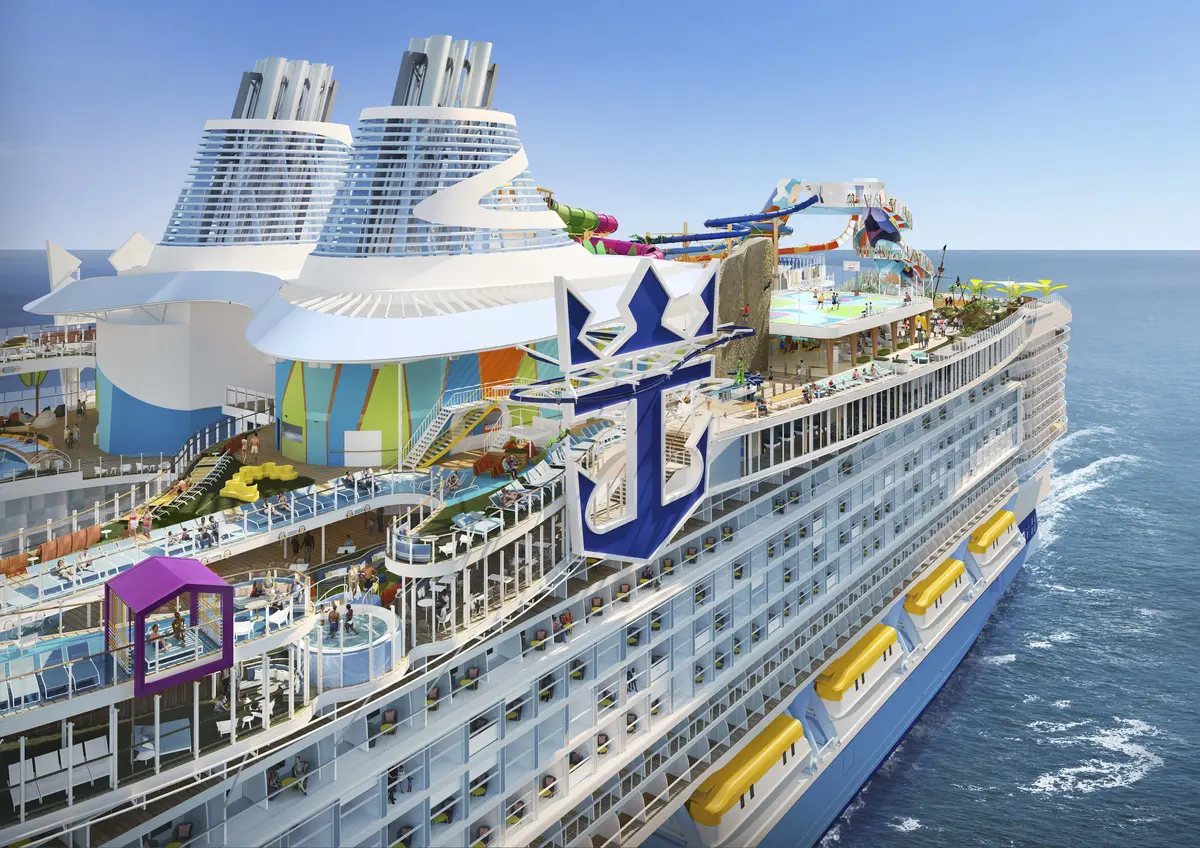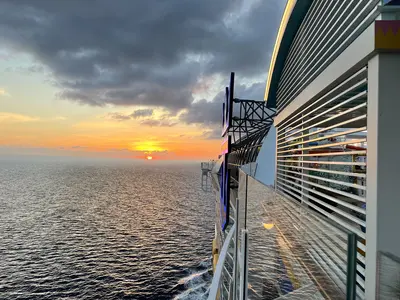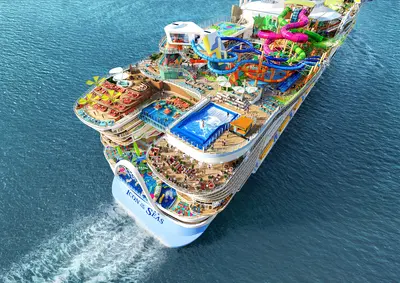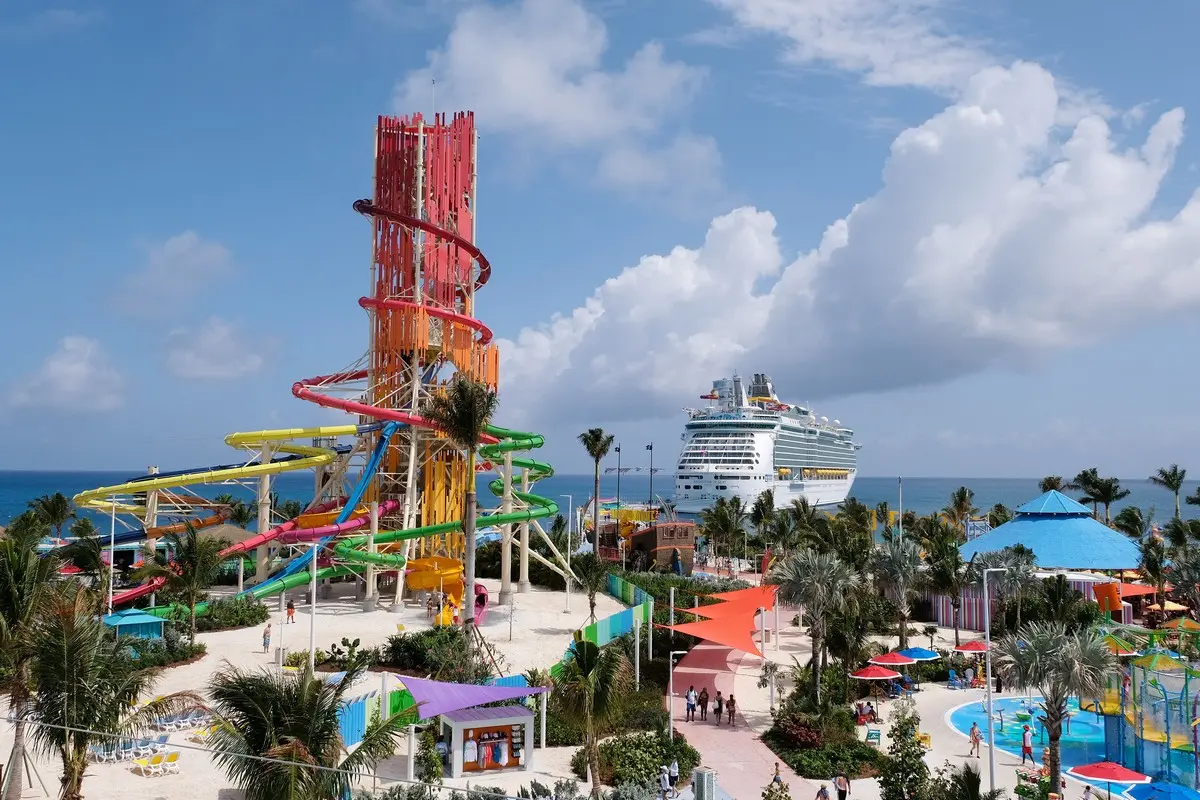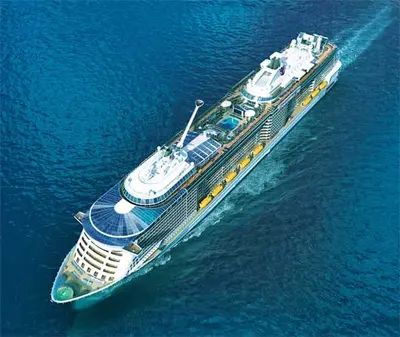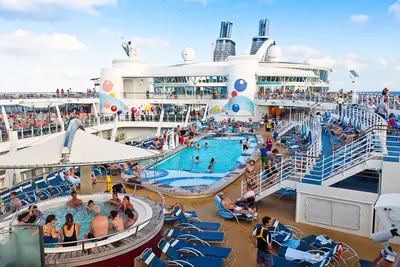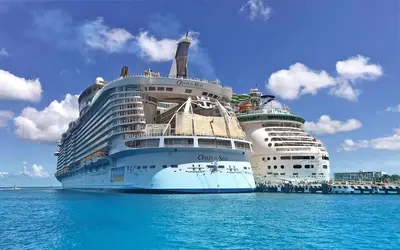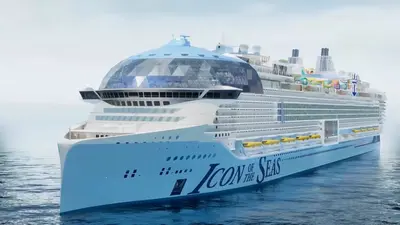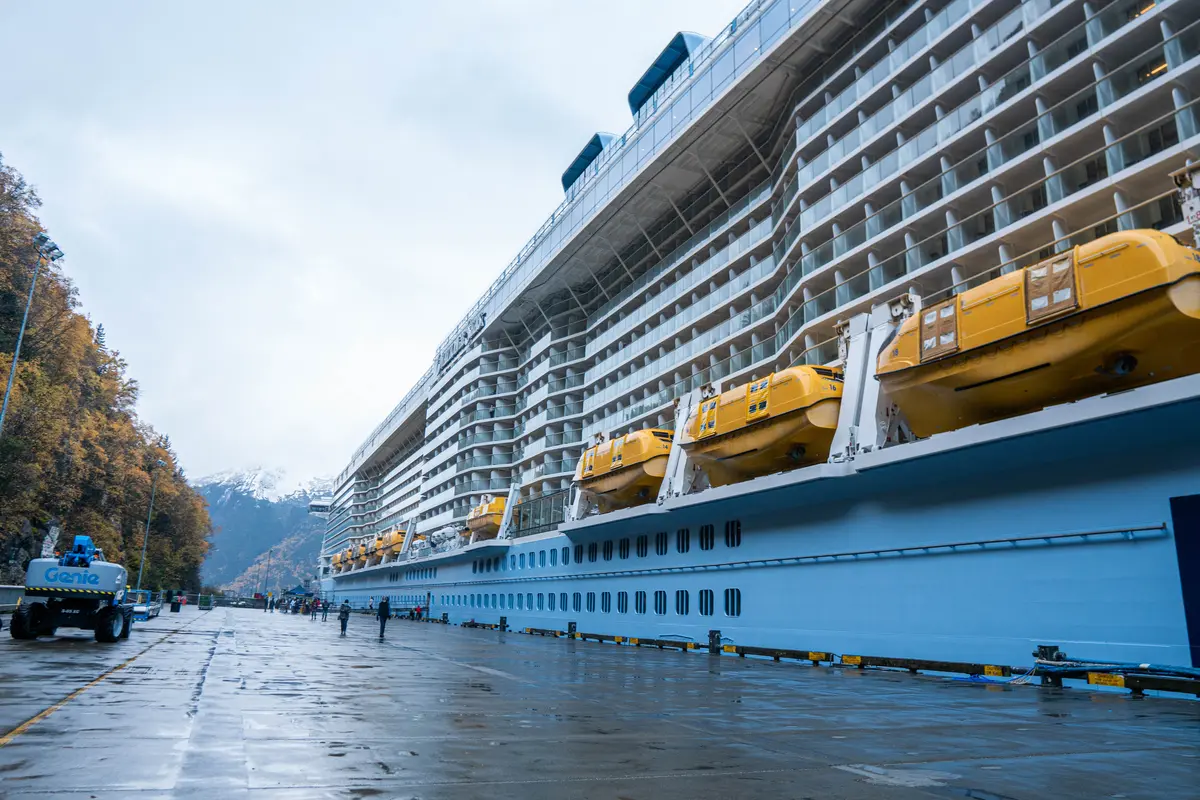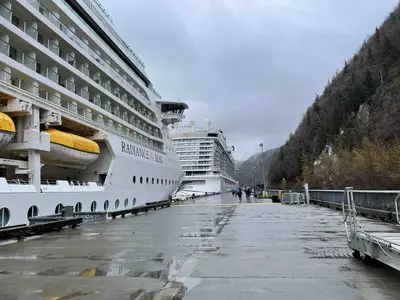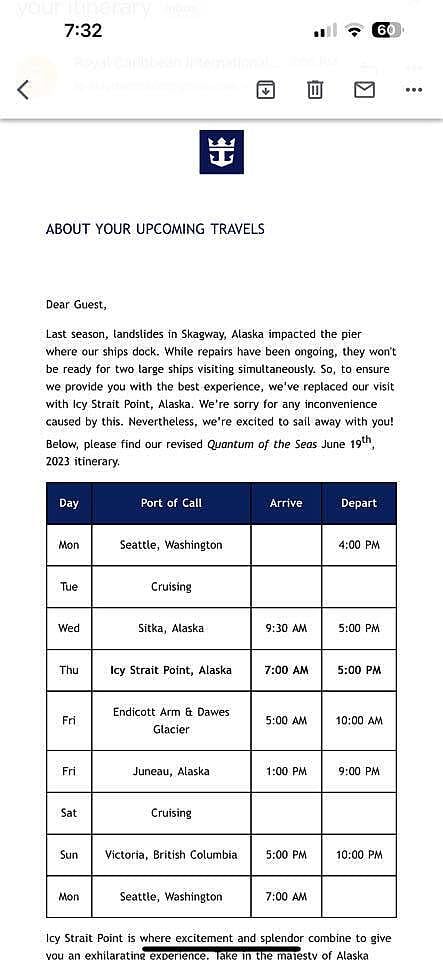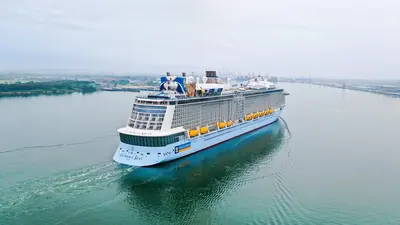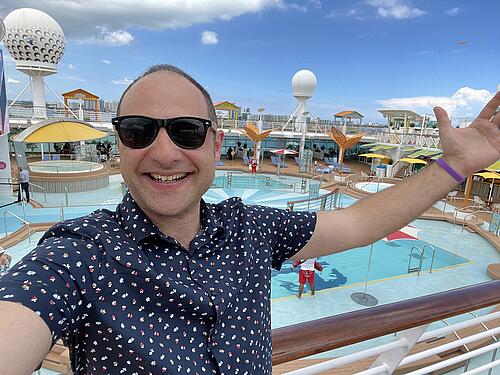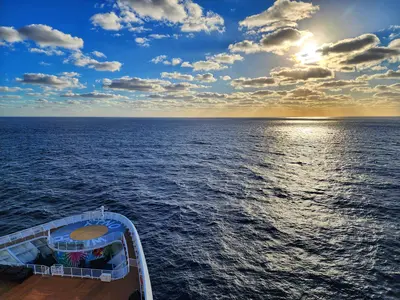First look: Icon of the Seas construction tour in the shipyard
In:Royal Caribbean's Icon of the Seas is still many months away from setting sail with passengers, but we have an early look at the progress being made onboard.
At the Meyer Turku shipyard in Finland, Royal Caribbean showed an early look at its next-gen cruise ship. The line is excited for Icon to launch, and so is the public. Sales for Icon bookings well before the ship begins operations have broken all sorts of sales records already.
Estimated to be 82% complete, Icon of the Seas will become the world's largest cruise ship when it launches. She promises to offer a number of new innovations and activities that aim to rival any other family vacation destination.
Royal Caribbean International President and CEO Michael Bayley called the new ship "mind blowing", "I think everything about Icon is just unbelievable. We're positioning this product as the ultimate family vacation."
"We think it's going to be the best family vacation in the world and all of the energy and time that's gone into creating this ship is just mind blowing."
There's still plenty of work to do, as an estimated 2 million working hours are left to be completed.
![]()
![]()
If the ship doesn't look as far along as you might be lead to believe, it's because the final work is when they make it ready for guests. When the ship is at 90%, the panels and finishings get added and that makes it look far more "complete" to a guest.
Seeing the space gave a great perspective on the scale of the ship and general feel for the layout, which is difficult to ascertain from concept art or deck plans.
The cruise line expects sea trials to begin before summer.
We took a hard hat tour of the ship, walking through all of the ship's neighborhoods to get a sense of what looks like now, and what guests can expect once the vessel is ready.
Walking onboard
![]()

Guests will walk onboard the ship and enter the 1400. Royal Caribbean wanted to design an entrance that wasn't just a gangway leading to a random area of the ship. Instead, they designed a true embarkation experience.
![]()
![]()
The 1400 name is an homage to the build number of the ship, and it features plenty of windows to see the ocean when the gangway is not present.
Royal Promenade
![]()
Just like many other Royal Caribbean ships, Icon of the Seas will have a Royal Promenade. Unlike other ships, the Promenade is a complete loop, meaning it has no beginning or end. This means guests will not have to walk up and down stairs to get from one side of the Promenade to another if the destinations are on separate decks.
![]()
The Royal Promenade will have restaurants, bars, and shopping opportunities and be two decks high.
![]()
The Royal Promenade is a fan-favorite that has been around since Voyager of the Seas. On Icon of the Seas, the neighborhood is going to be redesigned and have windows to allow natural sunlight, something that the cruise line has yet to do here!
Many staples will be found here, including Sorrento’s, Starbucks, the Karaoke Bar, and pub. It will continue to be a center for excitement during all hours of the day.
The Pearl
![]()
It's still not clear what Royal Caribbean has planned for the Pearl, but we got a preview of what it will be by walking through it.
The Pearl leads from deck 5 to deck 6, and it has specially designed walls that can change color and even move, along with music being played.
![]()

While inside, we heard the Perfect Day at CocoCay theme song as a demo of what they have in mind. Royal Caribbean isn't prepared to discuss what guests can expect in the Pearl, but it's more than just a pretty space.
A fun fact about The Pearl is it also serves as a weight bearing device to physically support the weight of Central Park above it. For such a large ship, Royal Caribbean wanted to create a more innovative way to bear the ship's weight. Instead of adding generic columns, they created something that has never been seen on a cruise ship before, and it's undoubtedly impressive.
Pearl Cafe
![]()
As you walk through The Pearl from the Royal Promenade, you'll enter Pearl Cafe, a casual, complimentary grab-and-go coffee shop style venue.

The cafe is located in front of the giant, 36x95 foot window found on Icon of the Seas, so amazing ocean views are sure to be in abundance at this venue. Comfortable seating and dining areas are located near the cafe, allowing guests to take in the ocean views with their coffee and snacks.
Boleros
![]()
While Icon of the Seas will have plenty of new innovations, it will still have fan favorites, such as Boleros.
Boleros is the latin themed bar found onboard most Royal Caribbean cruise ships, and it's where you'll find live music each day of the sailing. From salsa to merengue and samba, it's a popular spot for dancing on the Royal Promenade.
![]()
Like on other ships, Boleros will be located on the Royal Promenade on Icon of the Seas. The bar's convenient location makes it an easy place to stop by for a quick drink, whether a classic mojito or margarita.
Surfside
![]()
Perhaps the crown jewel in Icon's family-centric design is the first neighborhood dedicated to young families.
Royal Caribbean wants Surfside to be a place for kids and parents to enjoy the space together, rather than something just for kids exclusively.
![]()

The new area will have a carousel, pools, Splashaway Bay aqua park and eateries that cater to children and their parents.
![]()
![]()
There's even a bar where kids and adults have different choices. Once again, Royal wants families to be able to spend time together.
You'll be able to access Surfside by stairs or slide (the slide is meant for younger kids to quickly venture down), leading to all the options in this area.
![]()
![]()
There will also be cabins that face into Surfside, including the Surfside Family View Balcony and Surfside Family Suite.
Cabins
We got a sneak peek at two different cabin types coming to Icon of the Seas.
The first type of cabin we saw was the Surfside Suite.

![]()
![]()
![]()
![]()
![]()
![]()
![]()
The Surfside suite can accommodate up to 4 guests (2 adults and 2 kids) and measures 269 square feet, with a 53 square foot balcony.
The other suite we saw was the Infinite Family Balcony.

![]()
The room can be expanded with neighboring rooms. Being able to accommodate more larger families is a common theme, as over 70% of cabins on Icon of the Seas can handle 3 or more guests. That's 60% more rooms than on Wonder of the Seas.
![]()
![]()
![]()
![]()
![]()
![]()
![]()
One neat feature of the room is a movable desk, so it can be used both as a desk or a dining table.
![]()
Central Park
![]()
One of the most impressive areas of Royal Caribbean's Oasis Class ships, Central Park, will be included on Icon of the Seas.
The park has living plants that create a beautiful landscape in the middle of a cruise ship.

![]()
![]()
Lou’s Jazz and Blues will be a live jazz club with both indoor and outdoor seating, a staple of nearly every Central Park venue. There will also be Bubbles, a walkup champagne bar window.
![]()
![]()
In terms of accommodations, Royal Caribbean has introduced the Infinite Central Park Balcony, which brings the balcony portion of the cabin into the living area. With the push of a button, you can control whether the window – balcony – at the end of the room is raised or lowered.
Mystery dining venue
![]()
Royal Caribbean took us to a yet unnamed dining venue that they wanted to tease.
![]()
The only detail provided was it is dining related.
Based on the ceiling, I think it could end up being the Supper Club, which was leaked in December.

AquaDome
![]()
Guests who love the Oasis Class’ AquaTheatre will find the 363-ton AquaDome to be even more impressive.
The multipurpose space will host shows that feature aerialists, acrobatics, high dives, and the tallest waterfall at sea at 55 feet tall.
![]()
This was the most fleshed out venue we saw, and the size and height of the AquaDome is really impressive.

The space will offer 220-degree views through massive floor-to-ceiling windows and will be home to The Overlook. This elevated lounge will be perched on top of the bridge and feature laidback pods for those who want to get together on a more intimate level, whether that is to enjoy each other’s company over a drink or play a card game or two.
We also toured The Overlook area in front of the AquaDome.
![]()
![]()

![]()
During our tour, Royal Caribbean Vice President of Entertainment Nick Weir, provided details on the shows that will be performed onboard in the AquaDome, ice skating rink, and Royal Theater.
![]()
AquaTheater show: Aqua Action!
![]()
Starburst ice skating show
![]()
![]()
Chill Island
![]()
Next on the tour was the outer decks, starting with Chill Island.
Chill Island is going to completely redefine the cruise ship pool deck. The three-deck pool area will have the largest pool at sea, Royal Bay Pool, as well as the first swim-up bar at sea called Swim & Tonic.
![]()
![]()
![]()
![]()
On the port side of the ship, guests will find the Cove Pool, an infinity pool that faces the ocean and will have in-water lounge chairs, and Cloud 17, the adults-only retreat for guests 16+ that is replacing the well-known Solarium.
It will have a dedicated Lime & Coconut Bar.
Thrill Island
![]()
Water slides were being actively installed for the Category 6 water park, which is the center piece of the new neighborhood.
![]()
Thrill Island is one of five brand-new neighborhoods that will debut on Icon of the Seas. This neighborhood is for the ultimate thrill seekers and will be home to the record-breaking complimentary Category 6 water park.
All six water slides are either the “first” or “longest” slide at sea. The Frightening Bolt, for instance, will be the tallest drop slide at sea, while Hurricane Hunger will be the first family raft slide at sea.
![]()
![]()
![]()
Other thrills include a FlowRider surf simulator; Sports Court; Adrenaline Peak, the ultimate rock-climbing wall; a reimagined mini-golf course that is themed around a lost island; and Crown’s Edge, which is part skywalk, part ropes course, and part thrill ride.
![]()
As you make your way over the edge of the ship, you will have to be prepared for the floor to retract and send you soaring over the sea.
Suite deck
![]()
The final area we toured is the new Suite Neighborhood.
The Suite Neighborhood first debuted on Wonder of the Seas. With three decks of dedicated space available only to those staying in the Royal Suite Class, this will be their largest Suite neighborhood yet!

![]()
![]()
Guests will find a sun deck and exclusive Coastal Kitchen restaurant, as well as a brand-new restaurant called The Grove, which will serve up Mediterranean cuisine.



